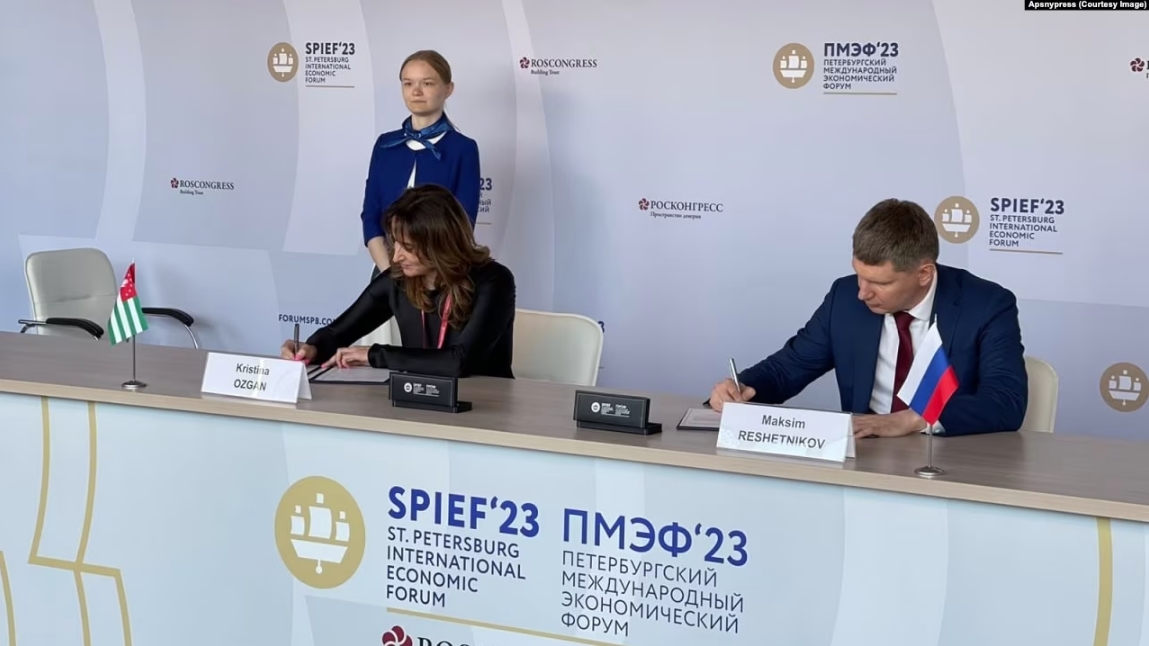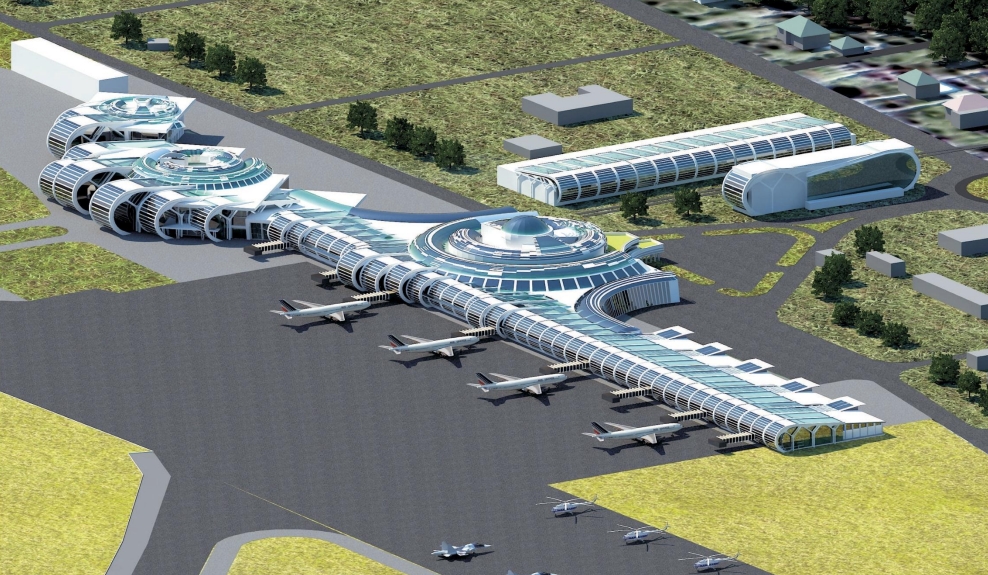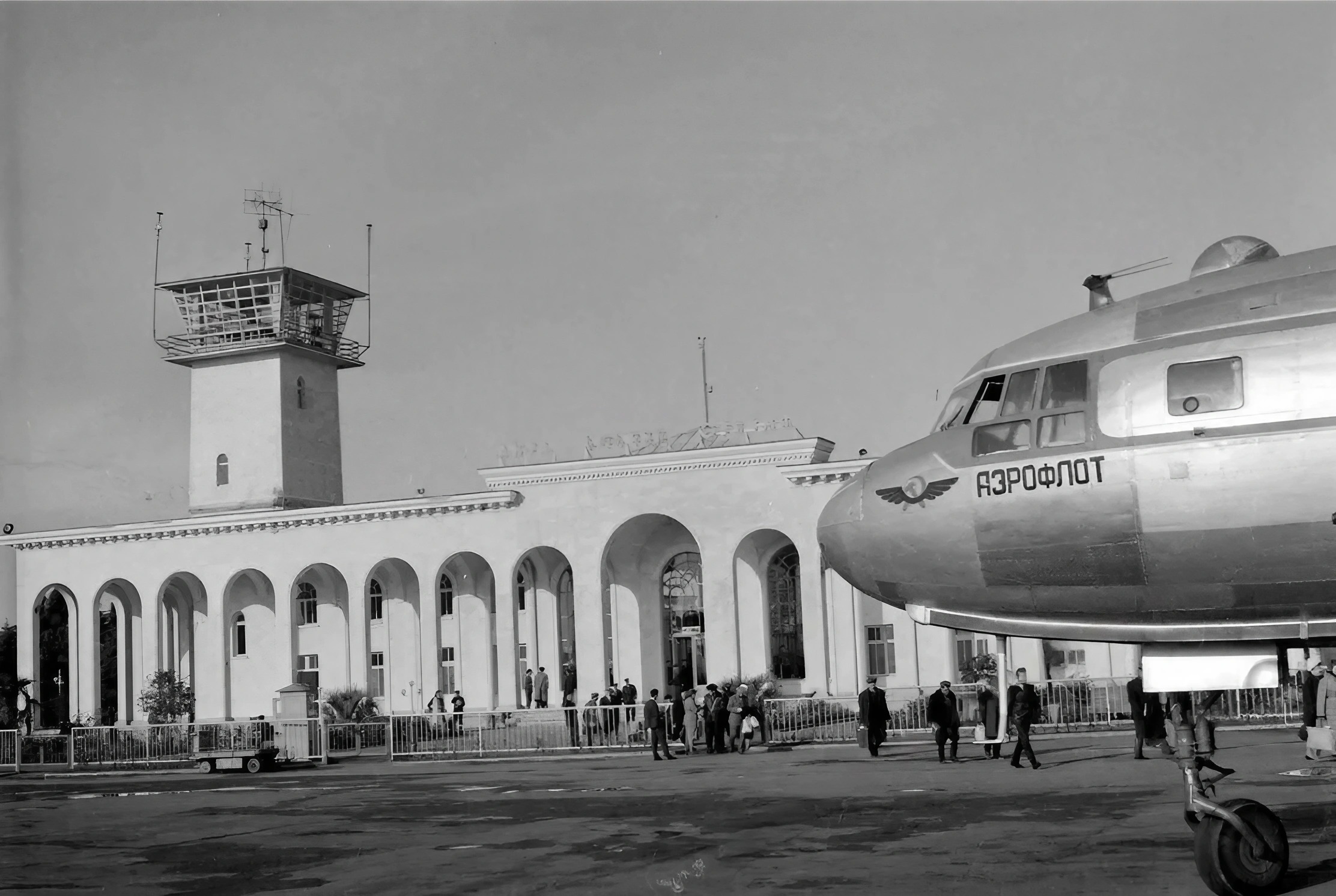The Sukhum Airport – Delving Deeper into Abkhazia's Most Notable "Abandoned Project"

Vitaly Sharia | Ekho Kavkaza — The information that Abkhazia and Russia have signed an agreement for the investment project to resume operations and further exploitation of Sukhum Airport has recently sparked heated discussions in Abkhaz society. The agreement was signed on the sidelines of the St. Petersburg International Economic Forum (SPIEF) 2023, which took place between June 14-17.
On the Russian side, the document was signed by Maxim Reshetnikov, the head of the Ministry of Economic Development, while on the Abkhazian side, the signatory was the Deputy Prime Minister and Minister of Economy, Christina Ozgan. The agreement was devised by the Ministry of Economic Development of Russia with the aim of reinstating air communication with Abkhazia. A Russian company is set to undertake the airport's revival.

According to the website of the Russian Ministry of Economic Development, the Sukhum Airport's renovation will occur in two stages and will be funded by private investment, without resorting to federal budget resources. As per the preliminary evaluation by the Ministry of Transport of Russia, the Federal Air Transport Agency, and potential investors, the cost of the first phase of reconstruction is estimated at 6.5 billion rubles (approximately 78 million US dollars). The first stage entails reconstructing 2.4 out of the 3.6 km runway, which would enable the airport to accommodate passenger aircrafts like SSJ-100, MS-21, and freight IL-76. The projected annual passenger volume after the first phase of reconstruction is 375.8 thousand. The second phase of restoration work will commence upon reaching a milestone of 1 million passengers per year. Should the project proceed according to schedule, the airport's operation is slated to resume in the fourth quarter of 2024.
The projected total passenger traffic for the refurbished airport is estimated at around 1.2 million passengers per year.

invest.apsny.land
It's essential to note that this subject intermittently emerged in public discourse over several years, during the tenures of Presidents Sergey Bagapsh, Alexander Ankvab, and Raul Khajimba. There was uniform agreement back then – everyone was unanimously "in favour". However, responses to the repeated news varied, fluctuating between enthusiasm and scepticism. It's impossible to recount every instance, but one example stands out. On July 26, 2019, the Cabinet of Ministers of the Republic of Abkhazia, in agreement with the Russian side, assigned the international four-letter code "URAS" to the V[ladislav] G. Ardzinba Sukhum International Airport and the airspace of the Republic of Abkhazia. This code was then included in the Aeronautical Information Collection (AIP) of the Russian Federation. The code follows a particular pattern: the first letter typically features in codes of airports in the post-Soviet space; the second represents the city of Rostov-on-Don, which is responsible for air traffic control monitoring all airlines traversing the region; the third signifies Abkhazia, and the fourth denotes Sukhum. That decision was met with considerable enthusiasm. But what followed after the code was assigned?
+ Conditions for Sukhum Airport Restoration Unveiled by Minister Ozgan
+ Cabinet Discusses Design of Air Checkpoint for Sukhum Airport Reconstruction
The current discussion is distinguished from previous ones, as it takes place amid ongoing accusations from the political opposition against the incumbent government for allegedly selling off the country's strategic assets. In this context, Sukhum Airport, which has remained dormant for nearly three decades, could be regarded as one of the most significant such abandoned projects. Here are a few representative online comments:
- "The only airport in Abkhazia has been transferred to private ownership!!! Will we stay silent?";
- "After the gross errors made previously, can we trust them at all?!";
- "I am absolutely displeased with this. Why are these secret agreements always being signed? This was the case with the previous administrations too. It's profoundly disappointing";
- "All nations are seeking investors, but we oppose everyone. Our people neither wish to invest nor allow others to do so";
- "There are numerous benefits to opening the airport. Even if it's privately owned, why must we view everything as a catastrophe?"

Sukhum Airport (1962), located 18 kilometers from the city of Sukhum, was built in the 1960s and was able to receive up to 5,000 passengers per day during peak seasons before it was closed in 1993.
Here are a few segments from an online publication that elicited a response from Kirill Bazilevsky, a resident of Moscow and coordinator of the "Abkhazian Projects" partnership:
"...How do these individuals envisage resolving the issue with Sukhum Airport? For instance, how did Raul Khajimba, whose supporters have been the most vociferous in their pre-emptive disapproval, plan to get the airport up and running, having pledged to establish air communication within the next year or two, starting from 2014? It seems unlikely he was banking on a magic figure appearing in a blue helicopter to refurbish the run-down, loss-making facility for free. However, considering all negotiations with potential investors ended in a stalemate, perhaps this was his expectation."
Here is a response to Bazilevsky's publication from a comment made under a pseudonym:
"Thousands of agreements get signed at the forum... but only a select few are actualized. Having participated in the forum's proceedings on multiple occasions, I can confidently state that without 'tangible' guarantees, no one will invest... In my view, these are 'political' manoeuvres... from both parties."
Akhra Aristava
"Ekho Kavkaza" reached out to economist Akhra Aristava for his perspective on the agreement and the ongoing situation with the airport. Here's his response:
"What can be said at this stage? We need to review the document thoroughly. Scrutinise the terms and conditions. Maybe they are reasonable for Abkhazia, or maybe they aren't."
Yet, Akhra appeared to harbour significant reservations about whether these terms would be acceptable to both Abkhazia and its populace. He elaborates:
"Abkhazia needs to master the art of tax collection, undertake reforms, and ensure transparency. Once we have these skills under our belt, we'll have the financial resources. At least enough to generate... Recall, there was once a fashionable concept - the public-private partnership? Our academician, Zaur I. Shalashaa, is a staunch proponent of this mechanism. When you invest your own funds, Abkhazian funds, it becomes easier to attract investors, the conditions become more favourable for Abkhazia, and it's simpler to safeguard the interests of your people. Conversely, without financial resources, any foreign investor will act in their own interests and have the upper hand, especially when there are unwarranted benefits on the table. And benefits are essentially gifts from the populace to businesses. The phrase 'special investment regime' was mentioned. I'm unsure as to its meaning, as our legislation doesn't contain any special regimes. Most likely, they will attempt to solicit the deputies once again, as tax matters fall within the parliament's purview. I'm quite sceptical about this. The deputies already rejected this once, if you recall, in December of last year. The president's administration put forth the proposal. But the deputies' logic is sound: the focus should be on replenishing the budget, not handing out benefits. Globally, it's well-accepted that benefits aren't the primary factor in attracting investments. This is a myth."
Akhra Aristava firmly believes that Abkhazia possesses internal resources for the gradual restoration of the airport:
"Last year - as reported by the National Bank - there has been a rapid surge in the money circulation within Abkhazia, yet we're failing to collect taxes in such a scenario. It's unworkable. Moreover, Khatuna Shat-ipa, an economics scholar, has also pointed out that the proportion of the shadow economy has sharply risen over the past few years. If our money circulation has hit 123 billion rubles a year, we should be able to collect at least 12 billion rubles in domestic revenue. However, we're not doing so. And this could have contributed 3-4 billion to the airport. It's not a vast amount to invest all at once. A certain amount could be invested one year, and another amount in the following year. As simple as that. There would also be enough for the energy sector."
Regarding the frequently voiced opinion that Sukhum Airport cannot operate profitably under current conditions due to limited passenger traffic, Akhra reintroduces the concept of phasing. As more tourists arrive in Abkhazia through the airport, the tourism market will expand, which will, in turn, boost passenger traffic. From Moscow, St. Petersburg, Samara, Novosibirsk...
This article was published by Ekho Kavkaza and is translated from Russian.